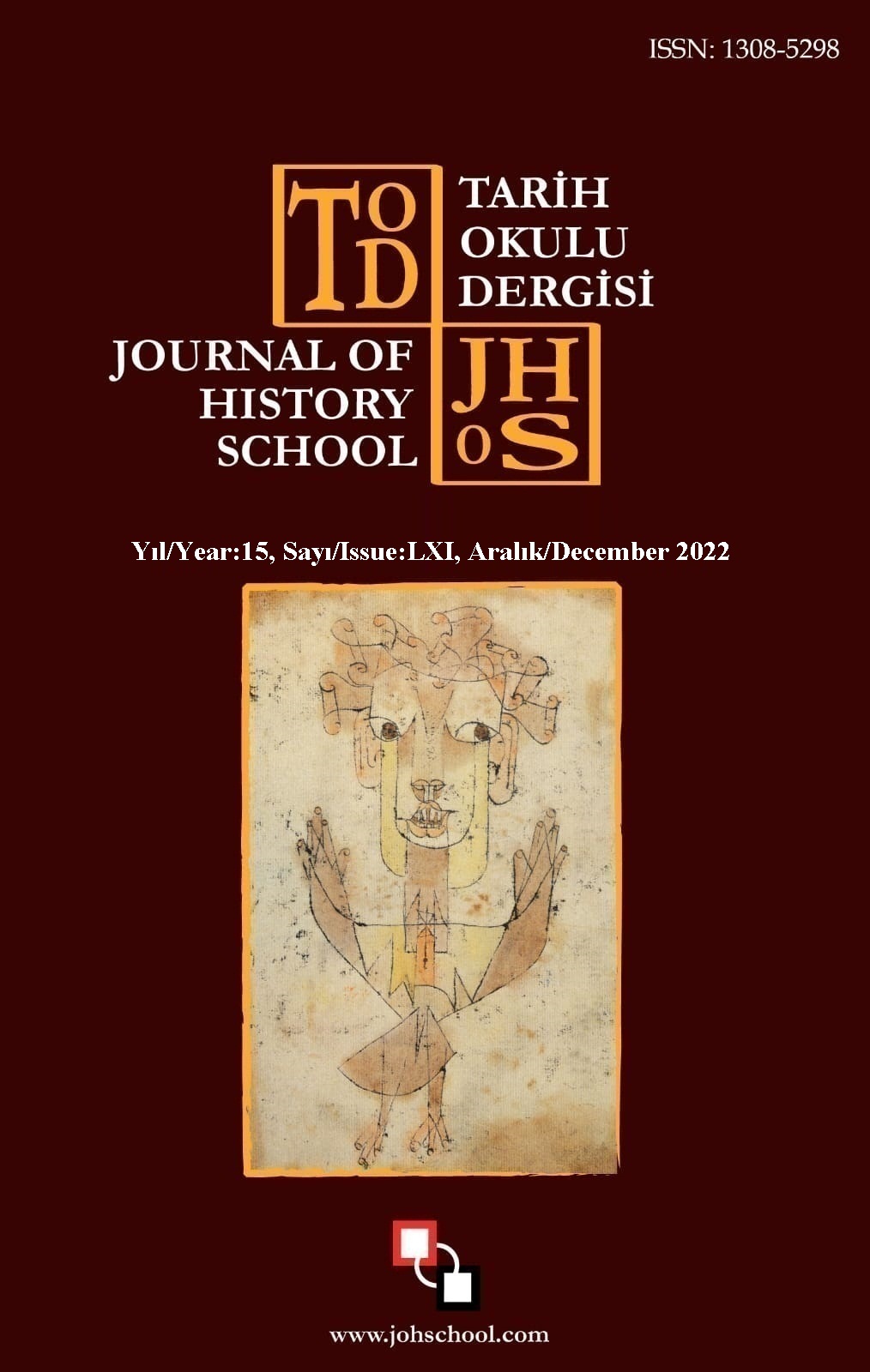YEDİ İKLİM TÜRKÇE ÖĞRETİM SETİNDEKİ SÖZ VARLIĞI UNSURLARINI KONU EDİNEN BİLİMSEL ÇALIŞMALARIN İNCELENMESİ
Author :
Abstract
Bu araştırmanın amacı, yabancı dil olarak Türkçe öğretiminde kullanılan Yedi İklim Türkçe öğretim setindeki söz varlığı unsurlarını inceleyen bilimsel çalışmaların bulgularını incelemek, daha sonra bu bulguları sınıflandırarak tek bir çatı altında toplamak ve bu sayede yabancılara Türkçe öğretimi alanında yapılacak çalışmalar için veri kaynağı oluşturmaktır. Bu amaç doğrultusunda araştırmanın verilerine, nitel araştırma desenlerinden doküman incelemesi yöntemi kullanılarak ulaşılmıştır. Araştırmacıların belirlediği anahtar kavramlar ile Ulusal Tez Merkezi, Google Scholar, TRDizin, Ulakbim, ResearchGate, Sobiad ve DergiPark veri tabanlarında yapılan tarama sonucunda Yedi İklim Türkçe öğretim setinin incelendiği altmış iki (62) makale ve elli dört (54) teze ulaşılmıştır. Belirlenen ölçütler doğrultusunda gerçekleştirilen tarama sonucunda ulaşılan toplam yüz on altı (116) çalışmadan, Yedi İklim Türkçe öğretim setindeki söz varlığı unsurlarının incelendiği on yedi (17) makale ve on üç (13) tez, araştırma kapsamında değerlendirmeye alınmıştır. Değerlendirmeye alınan çalışmalar; türlerine, yayımlanma yıllarına, inceledikleri öğretim seti sayısına, inceledikleri dil seviyesine/seviyelerine, amaçlarına, tespit ettikleri sorunlara ve ulaştıkları sonuçlara göre sınıflandırılarak tablolar halinde sunulmuştur. Araştırmanın sonunda, Yedi İklim Türkçe öğretim setini söz varlığı çerçevesinde inceleyen çalışmaların çoğunluğunu makale türündeki çalışmaların oluşturduğu, en çok çalışmanın 2019 yılında yapıldığı, araştırmacıların tek bir öğretim setini incelemeye daha çok eğilimli oldukları, öğretim setinin bütün seviyelerini konu edinen çalışma sayısının daha fazla olduğu ve en çok deyimlerin incelemeye alındığı sonuçlarına ulaşılmıştır. Ulaşılan sonuçlardan hareketle yabancılara Türkçe öğretimi alanında çalışma yapan araştırmacılara ve bu alana yönelik ders materyali hazırlayanlara birtakım önerilerde bulunulmuştur.
Keywords
Abstract
The purpose of this research is to examine the findings of scientific studies examining the vocabulary elements in the Yedi Iklim Turkish teaching set used in teaching Turkish as a foreign language, then to classify these findings and collect them under a single roof, and thus to create a data source for studies in the field of teaching Turkish to foreigners. For this purpose, the data of the research were obtained by using the document analysis method, one of the qualitative research designs. Sixty-two (62) articles and fifty-four (54) theses were reached, in which the Yedi Iklim Turkish teaching set was examined, as a result of the search made in the databases of the National Thesis Center, Google Scholar, TRDizin, Ulakbim, ResearchGate, Sobiad and DergiPark with the key concepts determined by the researcher. In line with the criteria determined by the researcher, out of a total of one hundred and sixteen (116) studies reached as a result of the scanning, seventeen (17) articles and thirteen (13) theses, which study the vocabulary elements in the Yedi Iklim Turkish teaching set, were included in the study. Evaluated studies are presented in tables by classifying them according to their types, publication years, the number of teaching sets they have studied, the language level/levels they have studied, their aims, the problems they have identified and the results they have reached. At the end of the research, it was concluded that the majority of the studies examining the Yedi Iklim Turkish teaching set within the framework of vocabulary consisted of articles in the form of articles, the most studies were conducted in 2019, the researchers were more inclined to examine a single teaching set, the number of studies dealing with all levels of the teaching set was higher, and the most ıt was concluded that many idioms were examined.
